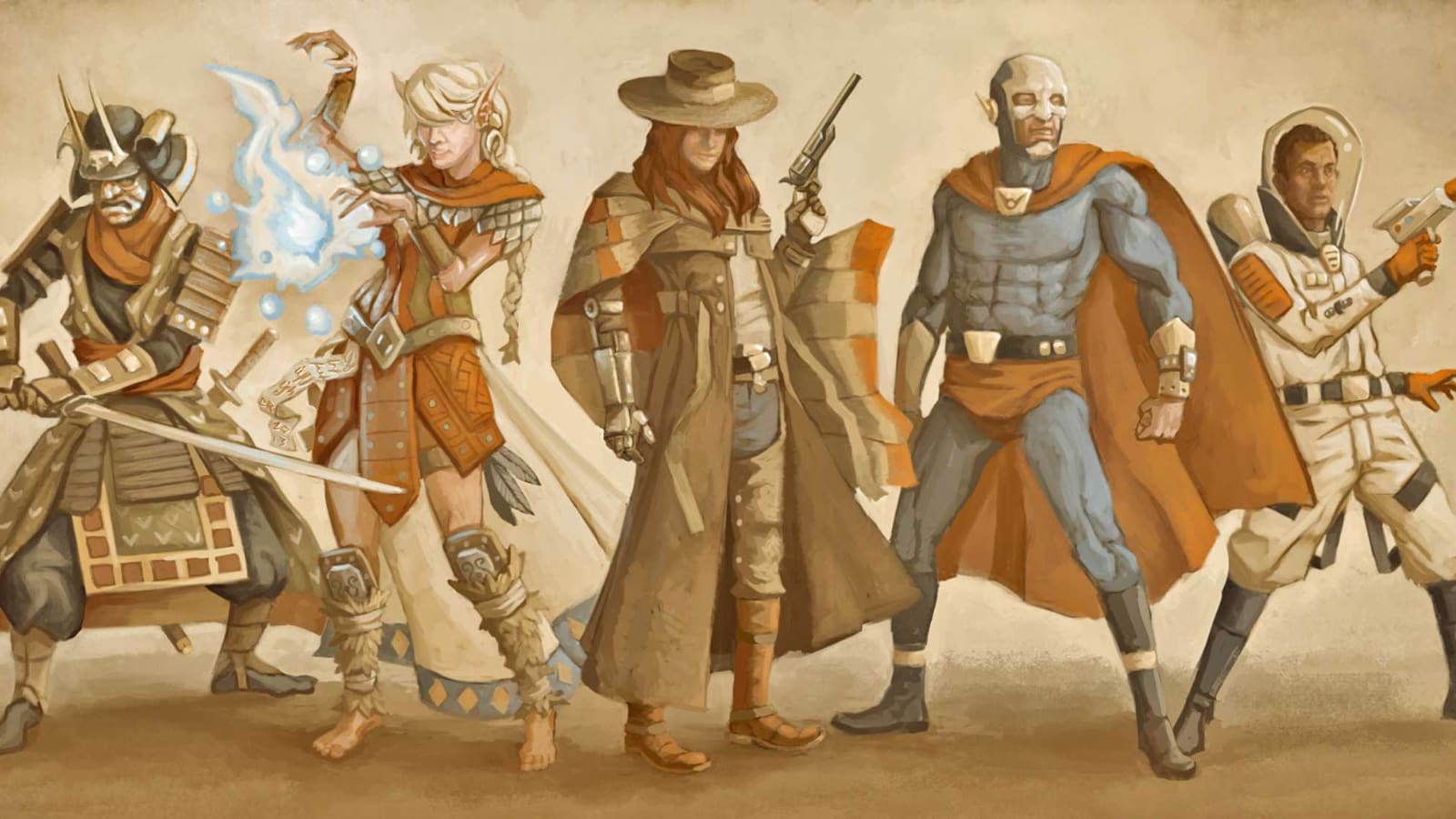This Site is Now an Archive

Unpossible Journeys came into the world almost exactly ten years ago. At the time I called it Learn Tabletop RPGs. My intent in creating it was to give back to the hobby that had given so much to me, and to help interested people find out more about roleplaying, find games to play, and learn how to get started.
Later I added a blog and over time added info on more games. I changed the name, which was not my brightest idea ever, but the site chugged along with occasional update. I felt it was making an impact, however small, and I enjoyed putting effort into it.
The Only Constant is Change
But gradually it became clear that video and social media were taking the place formerly occupied by blogs and odd hybrid sites like UJ. YouTube became the go-to for learning about anything and everything, including tabletop roleplaying. Traffic to UJ continued to dwindle, and I found myself less interested in updating it.
Now the ground has shifted again, and it’s quite clear that with AI taking over where search once held sway, a human-curated directory of information, laboriously updated, is not just a waste of time, it also doesn’t produce better results. As an example, ChatGPT-3.5 can easily tell you three of the reasons fans of Blades in the Dark enjoy the game:
Unique Setting and Atmosphere: Blades in the Dark is set in a dark and gritty industrial fantasy world, reminiscent of Victorian-era steampunk with supernatural elements. Fans appreciate the game’s atmospheric setting, which combines elements of crime, mystery, and the supernatural. The city of Doskvol, where the game takes place, is described in rich detail, providing players with a vivid backdrop for their adventures. The unique setting sets Blades in the Dark apart from other tabletop roleplaying games, offering players a fresh and immersive experience.
Narrative-focused Gameplay: The game places a strong emphasis on narrative storytelling and collaborative world-building. Fans enjoy the system’s mechanics, which encourage player creativity and engagement in shaping the story. The “Flashback” mechanic, for example, allows players to retroactively plan for unforeseen challenges, adding a dynamic element to the narrative. The focus on storytelling over strict adherence to rules appeals to players who enjoy a more fluid and character-driven experience, allowing them to contribute significantly to the development of the game world.
Mission-based Structure and Faction Dynamics: Blades in the Dark utilizes a mission-based structure, where players take on the roles of a crew of criminals planning and executing heists in a city filled with factions and rivalries. Fans appreciate the strategic and tactical aspects of planning and executing these missions. The inclusion of various factions with their own agendas and dynamics adds depth to the world and provides players with a web of relationships and conflicts to navigate. The interplay between the characters’ actions and the consequences within the larger framework of the city’s politics and factions contributes to the game’s complexity and replayability.
It doesn’t make sense to go to a website to get that information when you can just ask ChatGPT. And it doesn’t make sense for me to spend time doing something AI can do better.
So I’m keeping Unpossible Journeys alive, but it’s not going to change. It shall remain on ice, in amber, on the shelf, static. It’s done its duty. Now it’s time for it to function as a time capsule of sorts.
The Blog is Dead – Long Live the Blog!
As I realized the utility of Unpossible Journeys was receding, I spun up something very different. Train to Baikonur is laser focused on the world of Degenesis. Where UJ attempts to be neutral in its explication of tabletop roleplaying, T2B is more personal, more opinionated, and more about providing material that will help people run campaigns for that one game. Degenesis fans are not afraid of reading, and I enjoy writing for this much, much narrower audience. Through the Degenesis Discord I get a lot of interaction with and feedback from people who’ve read T2B posts.
In a similar vein, earlier this year I created Setting First, a blog devoted to verisimilitude in tabletop RPGs. It also explicitly privileges in-person campaign play. Because it combines several elements that are becoming less popular in the mainstream of the tabletop roleplaying hobby, it is a niche within a niche. But it allows me to write about (and perhaps even make videos about) the aspects of roleplaying that entice me most.
Discord is not Discordant
The UJ Discord remains active. It is small but mighty, and is intended for adults who want to talk about tabletop roleplaying in a supportive, no-drama fashion. Join the Unpossible Journeys Discord Server!
Ω